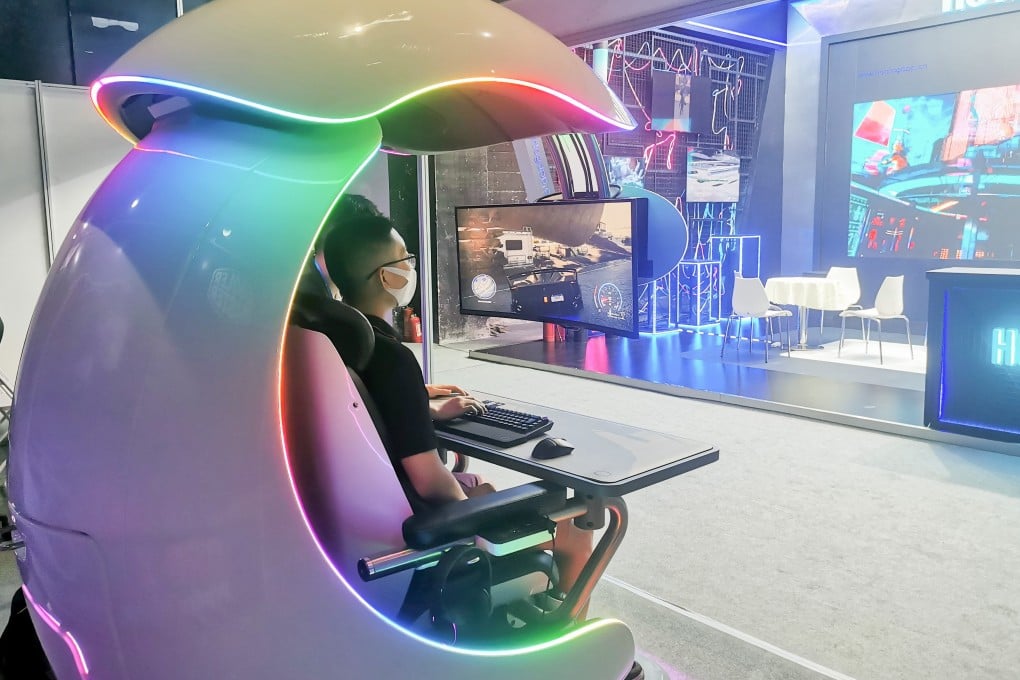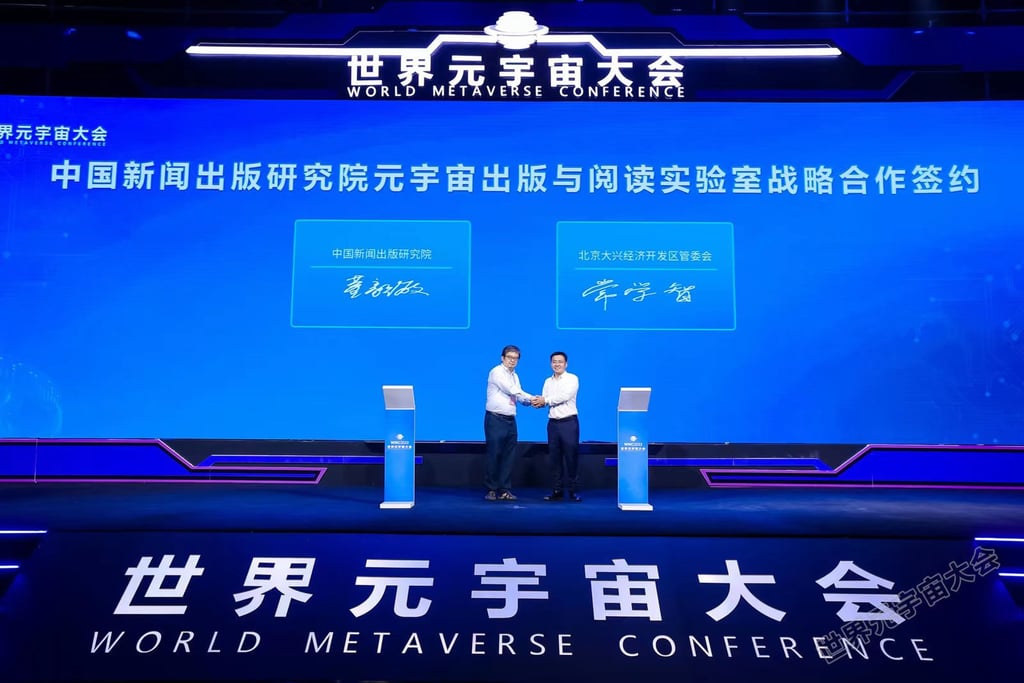China’s World Metaverse Conference kicks off in Beijing in display of national ambition but few foreign presenters
- China executives for tech giants like Nvidia, Epic Games and Unity showed up to promote their vision of the metaverse and standardisation
- Only two international speakers presented at the event, including Matthew Ball, known for his essays on the metaverse

Despite the conference name, international participation was severely limited due in part to strict Covid-19 controls. Only two foreign speakers offered pre-recorded talks for the conference, including venture capitalist Matthew Ball, who has become known for his series of essays on the metaverse.

The metaverse is “the new blue ocean”, he said, referring to an unexplored market with huge potential and little competition.
Several notable foreign tech companies were represented at the conference, but only by their Chinese executives. Graphics processing unit maker Nvidia, game engine developer Unity and Fortnite creator Epic Games all had executives at the event.
Li Haonan, Nvidia’s director of visual solutions technology in China, said that the metaverse is still “at a stage where everybody is competing with their imaginations”, but he believes it will become the next-generation internet within 20 years.